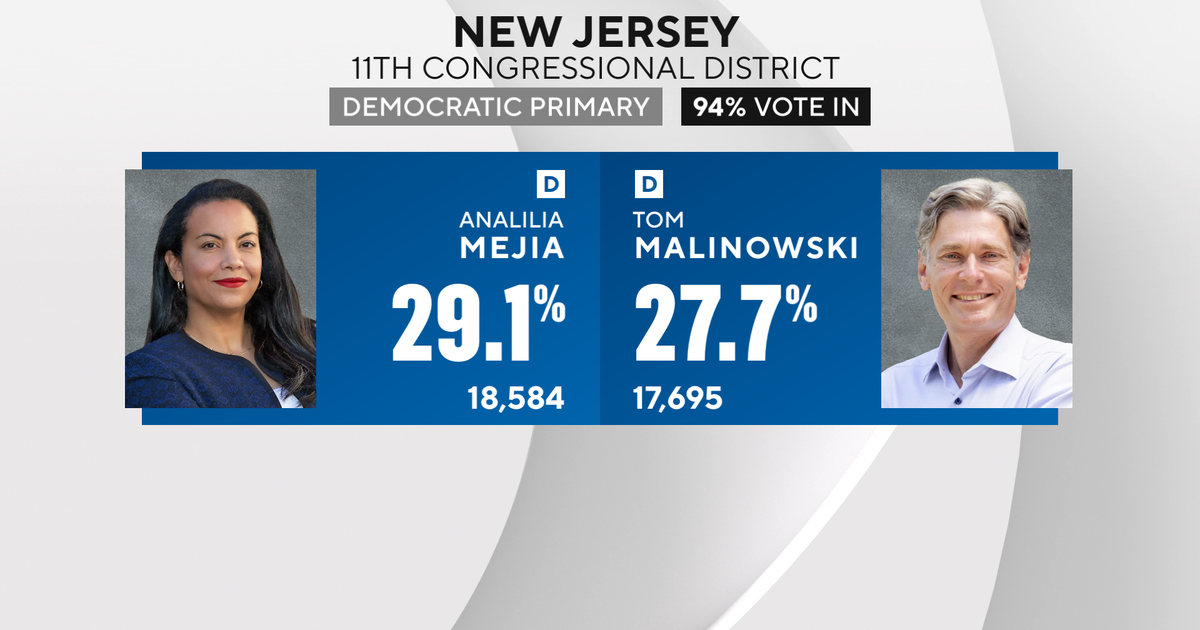Transcript: Former Rep. Liz Cheney on "Face the Nation," Jan. 7, 2024
The following is a transcript of an interview with former Rep. Liz Cheney, Republican of Wyoming, that aired on Jan. 7, 2024.
MARGARET BRENNAN: We turn now to former Republican congresswoman Liz Cheney. Her book is "Oath and Honor: A Memoir and a Warning." Good morning to you here.
LIZ CHENEY: Good morning. Margaret. Great to be with you.
MARGARET BRENNAN: I want to give you a chance to respond to the Speaker. Is it a fact, as he asserted that when you were in House leadership, you considered signing on to that challenge to Donald Trump?
LIZ CHENEY: It is not. We were, as Mike said, in constant contact throughout that period. I actually know precisely when he sent me the brief and precisely when less than 30 minutes later, I told him my concerns with the brief. Mike knows that as well. The brief itself was- was legally and constitutionally infirm. I made that clear. Mike's claims that somehow and this is very dangerous, that somehow, as a member of Congress, he has the right to reject, ignore the rulings of the courts. You know, we have dozens of state and federal courts that assessed the claims, assessed the constitutionality and rejected them. And Mike's position, which- which people really need to think about because it's so chilling, is that somehow as a member of Congress, he has the right to ignore the rulings of those courts to assert absent any fact- finding a fact that somehow he feels that something that happened was unconstitutional, and therefore, that he can throw out the votes of millions of Americans. That's tyranny. It's not the rule of law. It's tyranny. And- and it's important for people to understand that because this notion of rejecting, ignoring, refusing to abide by the rulings of the courts, is also what we will see in a second Trump term if Donald Trump is reelected.
MARGARET BRENNAN: And you write extensively about this in your book, and you say it was actually Donald Trump's own lawyers who wrote that legal brief that Speaker Johnson circulated.
LIZ CHENEY: Correct. And the other thing is, Johnson and I made this clear to him too the very first time we spoke after I reviewed the brief, that he was misrepresenting the brief to the members of conference. I also told him that I thought that signing on to this brief for anyone who was a member of a bar raised significant and serious ethical issues, because you were asserting to a court facts that not only were untrue, but which had already been rejected by other courts, and for which you had no basis, no knowledge. So he knows the truth, but the American people beyond the disagreement between Johnson and I need to recognize how dangerous it is to have elected officials who think they can ignore the rulings of the courts.
MARGARET BRENNAN: And so for- for those folks who say, oh, this sounds very complicated. One of the reasons we're talking about this is because the members of the House Republican leadership signed on to it. All of the members of the House Republican leadership supported Donald Trump's efforts to overturn the 2020 election and currently are endorsing him to be the next President of the United States. So from your perspective, it sounds like you're saying you don't trust Republican leadership in the House and their conduct in the upcoming election.
LIZ CHENEY: Look, you've had two members of Republican leadership in the House on television this morning. You've had Mike on, again, claiming that he has the right, individually, to decide that he's going to throw out millions of votes and ignore the rulings of the courts. You've had Elise Stefanik on this morning talking about the J-6 hostages. I mean, you don't have to take my word for the fact that you can't count on these elected Republicans to defend the Constitution. Every time they go out and give an interview. They demonstrate it themselves.
MARGARET BRENNAN: Now Elise Stefanik was on another network this morning, you just mentioned her. The quote was I have concerns about the treatment of the January 6 hostages. Hostages is a very specific word. And there are well over 1,200 people in the US legal system going through legal proceedings right now for their role in the attack that day. That word she used is exactly the word that Donald Trump uses.
LIZ CHENEY: And that's why she's using it. And it's outrageous, and it's disgusting. And if you- if you go and you look at what individuals have been convicted for, who are incarcerated, you'll find it you know, extensively, these are people who were involved in violence against police officers in the assault on the Capitol. And it is really- it's disgraceful for Donald Trump to be saying what he's saying. And then for those who are attempting to enable him or attempting to further their own political careers to repeat it, it's a disgrace. And you cannot say that you are a member of a party that believes in the rule of law. You can't say that you're pro-law enforcement. If you then go out and you say these people are, "hostages." It's disgraceful.
MARGARET BRENNAN: We have other Republican candidates for President like Ron DeSantis, who have said they are open to reviewing the cases against these defendants and considering pardons for them.
LIZ CHENEY: Look, you know, the President has- has pardon power and pardon authority. I think that it's a very important piece that people ought to consider when they're thinking about for whom they're going to vote. Someone who says that they would pardon individuals who assaulted the Capitol who attempted to stop a constitutional process, who assaulted police officers- I mean, it was a bloody battle. I had police officers, one tell me that it was- it was like medieval hand-to-hand combat. The notion that the Republican Party would continue its efforts to whitewash that day. When the peaceful transition of power is at the core of the survival of our republic tells you that they're unfit for office.
MARGARET BRENNAN: We have to take a break, but I want to come back with you on the other side of it. So stay with us. We'll be right back.
(COMMERCIAL BREAK)
MARGARET BRENNAN: Welcome back to Face the Nation, we return to our conversation with former Republican congresswoman Liz Cheney. The Supreme Court is going to take on that Colorado case, where the state was going to remove him from the ballot citing insurrection and the 14th Amendment. The Special Counsel Jack Smith, charged Donald Trump with a number of things, insurrection was not one of them. So given that it doesn't meet that Justice Department standard, do you think the Supreme Court will ultimately disqualify Trump?
LIZ CHENEY: We'll see what happens in the courts. If you look at the Select Committee's work, we made a criminal referral with respect to the part of the 14th amendment that talks about providing aid and comfort to an insurrection. I certainly believe that Donald Trump's behavior rose to that level, I believe that he ought to be disqualified from holding office in the future. It's working its way through the courts. And in the meantime, and in any case, we have to be prepared to ensure that we can defeat him at the ballot box, which ultimately I believe we'll be able to do.
MARGARET BRENNAN: The Supreme Court may ultimately hear it but right now, the DC Circuit will be taking on this question of presidential immunity from criminal prosecution this Tuesday. Lindsey Graham was on this program, the senator, last Sunday saying no one's immune from prosecution, but presidents do have immunity in order to do their job. And he said Trump just gave a fiery speech. As a conservative, what do you make of this and the broader argument that this will be undermining presidential immunity?
LIZ CHENEY: Look, I think that there's no basis for an assertion that the President of the United States is completely immune from criminal prosecution for acts in office. And I suspect that that's what the Court will hold. I think it's really important for people as they're looking at all of this litigation to recognize what Donald Trump's trying to do. He's trying to suppress the evidence. He's trying to delay his trial, because he doesn't want people to see the witnesses will testify against him. And we just saw again, this morning news reports that Dan Scavino, Pat Cipollone, testimony that they have apparently given in front of the grand jury, that once again confirms, you know, what we were able to discover in the select committee confirms that Donald Trump did not want to tell people to go home, did not want to tell the mob to leave the capitol, that he watched the attack on television. And Trump knows that the witnesses in his trial are not his political opponents. He knows that they're going to be the people who are closest to him, the people that he appointed, and he doesn't want the American people to see that evidence before they vote. They have a right to see that evidence before they vote. And so I think it's very important he not be able to delay his trial
MARGARET BRENNAN: Very quickly. What do you think of the fact that Secretary Austin has been hospitalized since January 1, and didn't tell the White House until days later?
LIZ CHENEY: I think they've got some very serious explaining to do. I think that there's a, there's a real difference between public transparency and, you know, alerting the commander in chief to the fact that the Secretary of Defense is in the hospital. Apparently the deputy secretary was on vacation in Puerto Rico. I think it's it's, it's- it's inexplicable. We need to know more about exactly what happened there. But that's not the way the Pentagon ought to be conducting business.
MARGARET BRENNAN: Still be asking questions about it. Thank you.
LIZ CHENEY: Thank you.
MARGARET BRENNAN: Liz Cheney, thank you for being here.



